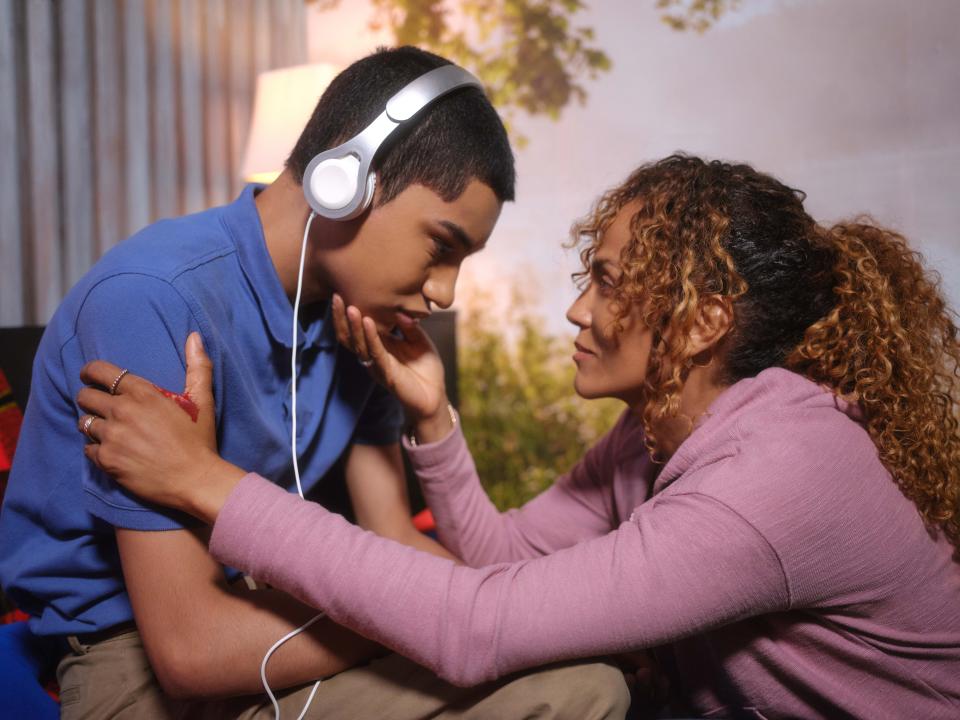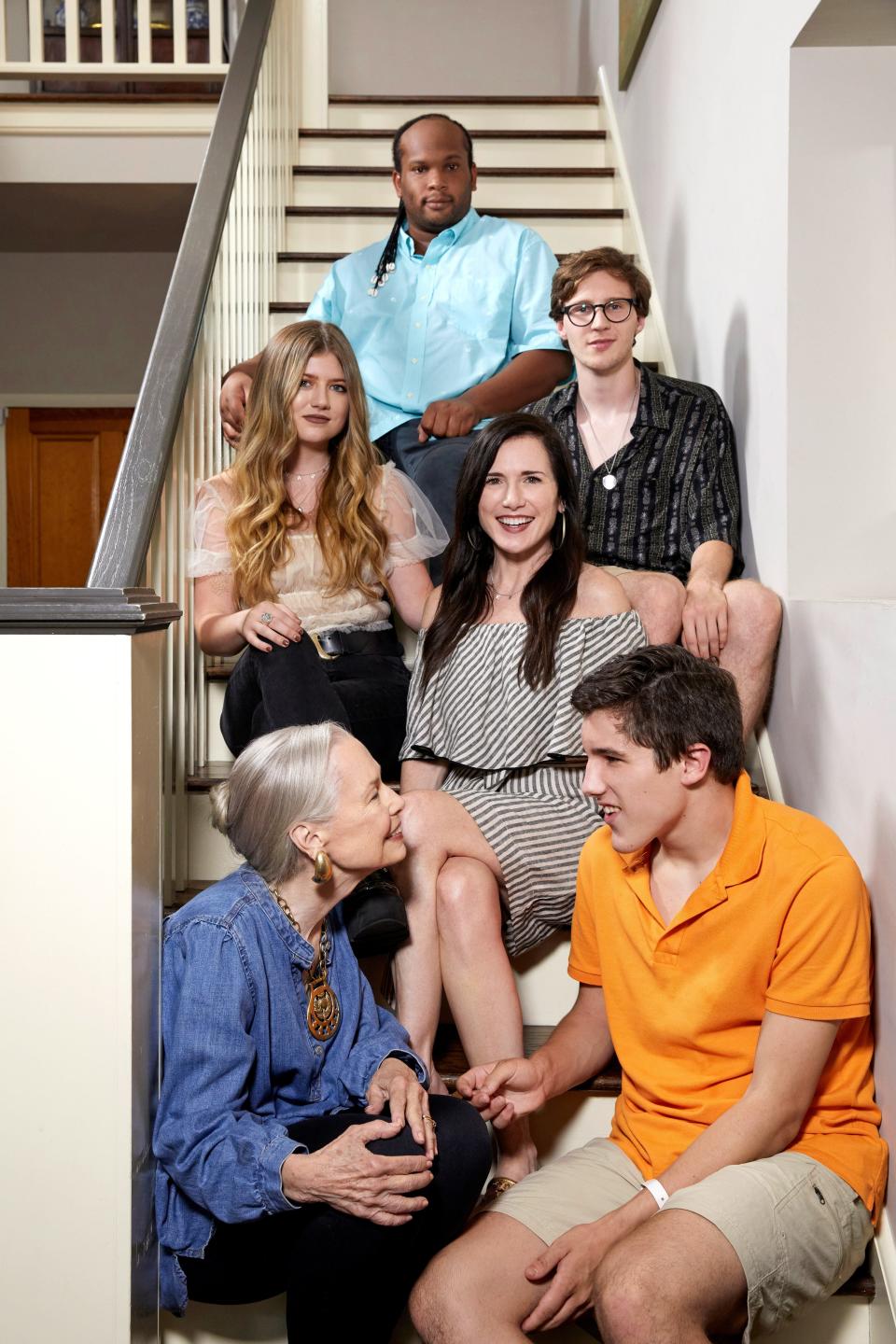'I hadn't seen roles like this': TV strives to give autism the accurate portrayal it deserves
Actress/filmmaker Sue Ann Pien cried the first time she saw Max Braverman, a young character on the autism spectrum on NBC's family drama "Parenthood." Series creator Jason Katims took inspiration for the 2010-15 series from his own life: His son, Sawyer, 25, has autism, a condition that affects how a person communicates and interacts socially.
Pien, 42, is also on the spectrum. "I had never seen myself on TV, written about authentically, with the meltdowns and everything that goes on," she says. "It was very isolating growing up, and I felt always like I was on the outside of this world, and I didn't belong here. To see characters that have similarities to me was an important game changer."
Years later, Pien found herself crying again over a character on the spectrum as she read a script for Katims' "As We See It." The dramedy (now streaming on Amazon) centers on longtime friends and roommates Jack, Harrison and Violet, 20-somethings navigating life on the autism spectrum. Violet works at Arby's and wants to set up dates online so she can find a boyfriend; Harrison struggles to make friends his own age and leave their apartment, and Jack clashes with his boss.
Fact check: Autism diagnosis criteria changes have led to increased rates
PBS Kids celebrates Autism Awareness Month with new friends
"I was touched and moved because I hadn't seen roles like this ever written, in years, that I connected to and related to," Pien says of her character Violet. "I was blown away."
Pien's co-stars in the new eight-episode series, Rick Glassman (Jack) and Albert Rutecki (Harrison), are also on the spectrum. The show is one of three TV projects premiering in January alone that feature people on the spectrum: Lifetime launched reality series "Leave It to Geege" (Wednesdays, 10 EST/PST), documenting the life of Geege Taylor, a Georgia mother whose son has autism, and "Safe Room," a scripted thriller in which a mom and her teen on the spectrum battle home invaders (available for streaming).
Each made efforts to ensure an accurate portrayal of people with autism. Katims says he employed neurodiverse people on his writing staff, in the editing room, on the set and in the production office. Lifetime partnered with RespectAbility, a nonprofit that creates opportunities for those with disabilities and fights for accurate representation, to produce a true-to-life depiction for "Safe Room" and cast an actor on the spectrum. Taylor says the "Leave It to Geege" crew received sensitivity training and made efforts to ensure her son's comfort.
Freeform's "Everything's Gonna Be Okay" (canceled in August after two seasons) was praised for its depiction of characters on the spectrum and its authentic casting. But more often, characters on the autism spectrum have been portrayed by actors without autism in TV shows and movies: Keir Gilchrist in Netflix series "Atypical," Dustin Hoffman as Tom Cruise's savant brother in "Rain Man" (1988), Claire Danes as scientist Temple Grandin in HBO's biopic (2010) and Maddie Ziegler in last year's "Music."
Danes spoke of the challenge in portraying a person on the spectrum the year her film premiered. "Playing somebody who is wired in a fundamentally different way is very hard, and there are obvious limitations that will always be in place," she told The Daily Beast. "I can't change the way my brain works."
Winter TV preview: 9 new shows to watch, from 'Pam & Tommy' to 'The Afterparty'
'A truly legendary human': 'How I Met Your Father' pays tribute to Bob Saget, narrator on 'HIMYM'

Katims, who cast Max Burkholder, an actor who isn't on the spectrum, as Max Braverman in "Parenthood," says authentic casting in his new series "enriched the story in so many ways. While these actors are not playing themselves, they have access to an understanding about the subject matter that is deeply embedded in who they are."
Lauren Appelbaum, VP of RespectAbility, emphasizes the importance of casting authentically. "You can't really teach someone to portray a disability. ... It is a lived characteristic." Representation in TV and media "has a lot of real-life consequences," she says. "What we see on our screens and read in our newspapers influences how we act in real life."
Ava Rigelhaupt, an autism consultant for RespectAbility who is on the spectrum, has noticed a shift from autism storylines with a treacly "after-school special" feel.
Writers are "trying to have diversity/disability representation, autism representation, etc., more embedded in the characters," she says. "You just learn as you're entertained. It's not just someone coming in just to teach something, just to show the audience a different perspective for one time."
Rigelhaupt consulted on Lifetime's movie "Safe Room" starring Nicole Ari Parker and Nik Sanchez as resourceful mother-son duo Lila and Ian, who has autism. Ian plays an important part in helping his mom overcome the movie's villains and is celebrated for a particular act of courage.
Grammys move to April, Sundance Film Festival goes virtual amid omicron spike

"If I'm brave, does that mean I'm normal?" Ian asks.
"Being brave is extraordinary, Ian. It's way bigger than normal," Lila responds. "It's not just what you did tonight. It is also standing up for yourself, for having the courage to fight for who you are, no matter what people say. You don't want to be normal, Ian. Please don't be normal, because you are so much more."
"Leave It to Geege" star Taylor also cherishes the differences in her son, affectionately nicknamed Pootie. The nonverbal 19-year-old is featured on the family-centric reality series Taylor describes as "zany and crazy and chaotic" alongside a cast of her colorful family members and friends, some of whom are on the autism spectrum.
Taylor remembers that when Pootie was diagnosed at 18 months, media coverage of autism was focused only on the negative aspects. "It just was really depressing for me," she says. "Very early on I thought, 'I want to change the conversation,' because I found that my life was so much better, brighter, happier living with my child with autism."

She hopes "Leave It to Geege" increases awareness and compassion.
"When we go (out in) public, we get a lot of looks because my son has different behaviors: flapping his hands, and making noises and things like that," she says. "Like all the other marginalized communities, all we want is for people to be respectful, to cheer us on, not to just stare at us like, ‘What the hell am I looking at?’ Because that's hard. I’ve toughened up, and it rolls off my back, but I still hate that. It makes me sad, even for the person who is staring at us ... because they're clearly uneducated about it."
Similarly, "As We See It" star Albert Rutecki hopes his series leads to "a little more understanding and respect" for those on the spectrum. "So often, I see people portraying autistic characters as these dorky super-geniuses, or like one-dimensional tragedies," he says. "I hope that (viewers) understand that we're complex humans who have our own wants and needs."
Rutecki's co-star Rick Glassman applauds the series for its efforts to be "authentic, and show a range of the spectrum, and not make it 'Oh, look, this person knows how many matches fell on the floor.' "
'Jeopardy!' interview: Champion Amy Schneider on her strategy (and why she wears those pearls)

Three representative projects in one month does not satisfy "Safe Room" director Boris Kodjoe.
"You look at the the entire scope of Hollywood and what we're producing every single year, and it's nothing," he says. "We have to do much better. We have to really create real voices in all of its diversity and create platforms that are empowering and supportive of these kind of stories."
Rigelhaupt says such a limited number of projects representing autism and disabilities leads some to "put all their eggs in one basket, hoping that this one movie or TV show will fulfill all of their dreams and (they'll) feel represented in Hollywood." But she says that's impossible.
"When there's more representation, then people can see themselves more broadly. ... When one movie doesn't live up to very high expectations, there can be more places to go to find representation."
'SNL': 'Joe Biden' blames omicron, inflation on ‘Spider-Man: No Way Home’
This article originally appeared on USA TODAY: Autism on TV: 'As We See It' and more strive for accurate portrayals

 Yahoo Movies
Yahoo Movies 
